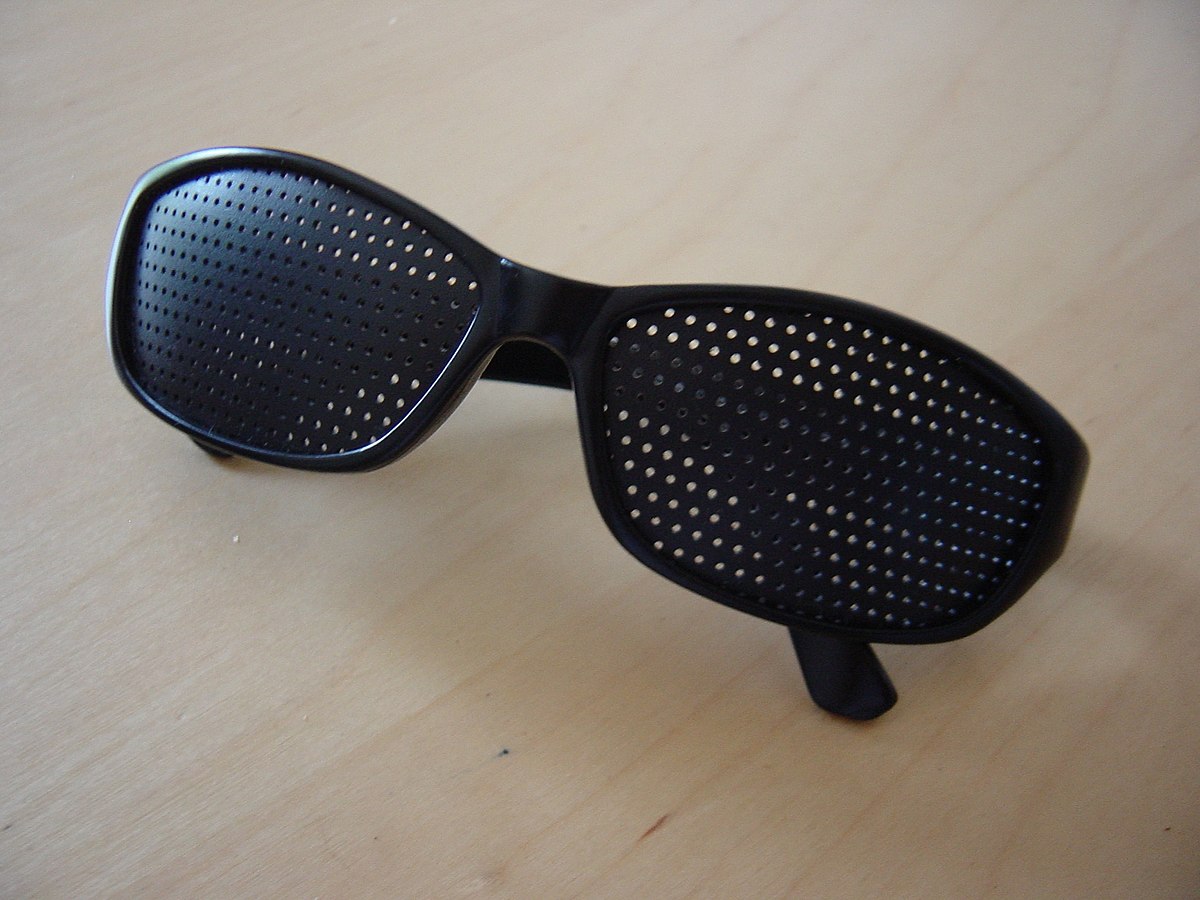Has anyone tried pinhole glasses to strengthen the muscles of the eyes? Speaking for myself they do work.
https://en.wikipedia.org/wiki/Pinhole_glasses
I wear reading glasses and have become very dependent upon them.. This is the typical loss of focus that comes with age. I've considered trying the pinhole glasses just haven't gotten around to them yet, and its good to hear they worked for you 1peacelover. The explanation given there is the muscles in eyes become lazy over time and loose their ability to focus on objects that are close. This is due to the preponderance of looking at things in close range and basically is a condition of living in our modern world with so much focus on things close at hand. These glasses are said to exercise the eye muscles, focusing mechanism. I read all this awhile back so may be missing important details there. The reading glasses, (just cheapo's found in the drug stores) cause headaches sometimes and I suspect are causing my eyes to become even weaker over time requiring a stronger magnification.
This quote by MusicMan seems a bit similar to the pinhole glasses:
I have found that if you take one of those vehicle magnetic strips with images on them (like a learner plate) they have rows of small holes in them. If you look at an object through that (without your spectacles), you can often resolve the image, perhaps not perfectly, but better than if you were not looking through the perforations
Excuse me Woodsman, I know this isn't your situation but wanted to mention it since the pinhole glasses where brought up and its a good reminder for me. My daughter also has astigmatism so the conversation has given me more understanding on that. Poor dear is so lost without her glasses although when she was in her teens she kept loosing them. I stopped buying them for her after awhile (mean mom!) and let her stumble around for a time thinking this would make her more responsible.



